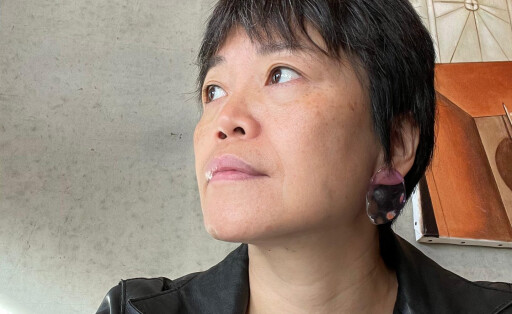With 1.4 billion inhabitants, China is the most populous country on earth. Chinese society is currently strongly influenced by politics and the economy. The Table.Media editorial team has the latest society news for China.
Society news from China: China's demography in numbers
China is home to just over 1.4 billion people. This makes the People's Republic the most populous country in the world. The country has an average life expectancy of 76.9 years, with women living to be 79.2 years older than men (74.8 years). In Germany, for comparison, women live to be around 83.4 years old and men 78.6. Although women in China (as in every country in the world) have a higher life expectancy, the gender distribution in the People's Republic tilts in favor of men. For every 100 women, there are 106.3 men. The difference is explained by experts with abortions. In Germany, the ratio is 96.8 men to 100 women.
Where do most Chinese live?
Although China is the most populous country in the world, with 151 people per square kilometer it is only in the global midfield in terms of population density. This is because the People's Republic is the third largest country in the world. But large parts of the interior and the west are not populated at all or are only very sparsely populated. The population is mainly concentrated in the coastal areas. In addition, a massive rural exodus has begun in China in recent years. The number of people living in rural areas in the People's Republic is now only 509 million. This compares with 671 million in 2010, the last year in which more Chinese lived in the countryside than in the city.
Is China facing the threat of an aging population?
The Chinese Communist Party has identified the aging of society as a major problem. Almost one in five Chinese (18.7 percent) is now over 60 years old. The group of able-bodied Chinese between the ages of 15 and 59 now accounts for only 63 percent. According to a United Nations forecast, the Chinese population could shrink by 2.2 percent by 2050 - while the American population is expected to increase by 15 percent over the same period. The aging of society in China could become a problem for the ambitious growth policy of the government led by President Xi Jinping. China wants to become a world power and technology leader by 2049. To achieve this, however, the country needs a large, well-trained workforce. Many competing countries already see this problem as a key factor in keeping the People's Republic at bay.
Why has China ended the one-child policy?
In order to mitigate the aging of the population in China, China abolished the one-child policy in 2016. However, this did not lead to the desired result. Only in the first year after the abolition did the birth rate increase slightly. Since 2021, the Chinese Communist Party has even allowed married couples to have three children. Experts believe that simply abolishing the law would not lead to a higher birth rate. "What is needed are other accompanying measures, such as tax incentives, subsidies for education and housing, child benefits, or even more generous regulations on maternity leave and/or paid parental leave," explains Christiane Otte, China expert at Germany Trade and Invest in an interview with the magazine Arbeit und Wirtschaft (https://www.arbeit-wirtschaft.at/arbeitsrecht-in-china-zwischen-armut-und-work-life-balance/).
What is the influence of the Communist Party on society?
The Communist Party exerts a guiding influence on society in China with a heavy hand. It has sole claim to leadership in the People's Republic. All media, political organizations, interest groups and religious groups must subordinate themselves to its political goals. The country is considered an autocratic one-party state. The government claims to have the moral duty to educate its citizens. In China, the individual must subordinate himself to the common good. Accordingly, attempts are made to suppress the individualism and independent culture of minorities such as the Uighurs. An extensive surveillance and censorship apparatus helps ensure compliance with strict regulations.
What belongs to China?
For many minorities in Chinese society, this understanding of togetherness is a major problem. China also includes Hong Kong and Macau, which are largely co-governed from Beijing under the "one country, two systems" policy, but which are granted certain special rights. This system was also sought by Tibet, but China categorically rejects it. From the Communist Party's point of view, Taiwan also belongs to China. The island, however, rejects the system for its part. An example of how little the government around President Xi Jinping thinks of cultural diversity is also the autonomous region of Xinjiang in northwest China. It is home to the predominantly Muslim Uyghurs. The Communist Party has interned thousands and thousands of people here for "learning courses" in "training centers." The Aspi Institute from Australia has identified 380 such camps where inmates must perform forced labor.
What about LGBTQ in China?
In light of the treatment of minorities in society, people of the LGBTQ (Lesbian, Gay, Bisexual, Transgender and Queer) community also face problems. Officially, the Communist Party decriminalized same-sex love in 1997. Since 2001, homosexuality is no longer considered a mental illness in China. But State President Xi Jinping toughened the tone against activists and people in the movement. Strident appearances and LGBTQ issues are again considered a violation of public mores. Accordingly, many social media channels and pages on the subject are regularly censored, deleted, or blocked. Many medical and psychology textbooks continue to describe homosexuality as not normal. Even treatment options are listed. In 2019, the Communist Party also emphasized that marriage is for relationships between a man and a woman.
Feminism in China: an unequal struggle?
Since 2018, the Metoo movement in China has also ensured that issues of equality between women and men receive more publicity in the People's Republic. But the activists have to fight not only against injustice, but also against their own government. The government prefers a traditional role model to women's striving for equality, also in view of the declining birth rate. This is a viewpoint that President Xi Jinping even made clear in his speech to the National Women's Association in 2013. Accordingly, feminist content on the Internet is censored very quickly. At the beginning of 2021, a new law also came into force that prescribes a thirty-day cooling-off period in divorces. In addition, mediators receive a financial reward if the marriage is not divorced. However, it is precisely these changes in the law that have led to fewer and fewer young women wanting to get married. In fact, 41 percent of women between the ages of 20 and 40 say they find it acceptable to die without ever having married. The issues being discussed in the context of the Metoo movement in China are the same grievances that are causing injustice in other countries. That is, in cultural, political, economic, historical and scientific areas. However, at an alarming level. In the Global Gender Gap Report, China ranks only 107th.
What impact does education in China have on society?
The development of society in China according to the plans of the Communist Party is held back not only by the low birth rate, but also by the lack of education. The level of education is too low to adequately qualify workers for the government's plans to transform the country into a high-tech nation. Among all middle-income countries, China has the lowest level of education, development economist Scott Rozelle calculates in a study. Only thirty percent of all Chinese have a school-leaving qualification comparable to that of an American high school. Countries like South Africa, Thailand and Mexico, which are comparable in terms of income, have higher graduation rates. These are important. Because nations that would make the leap to high-income usually have a rate of around fifty percent. Also, only 12.5 percent of all Chinese have a university degree.
Chinese society news
Society in China is facing a test of endurance. Women fight for their rights, but are held back by a patriarchal government. Minorities must fear reprisals if they do not bow to the culture of the masses. This is sold to the citizens of the People's Republic as the common good. The editors of Table.Media report on the path this development is taking.








